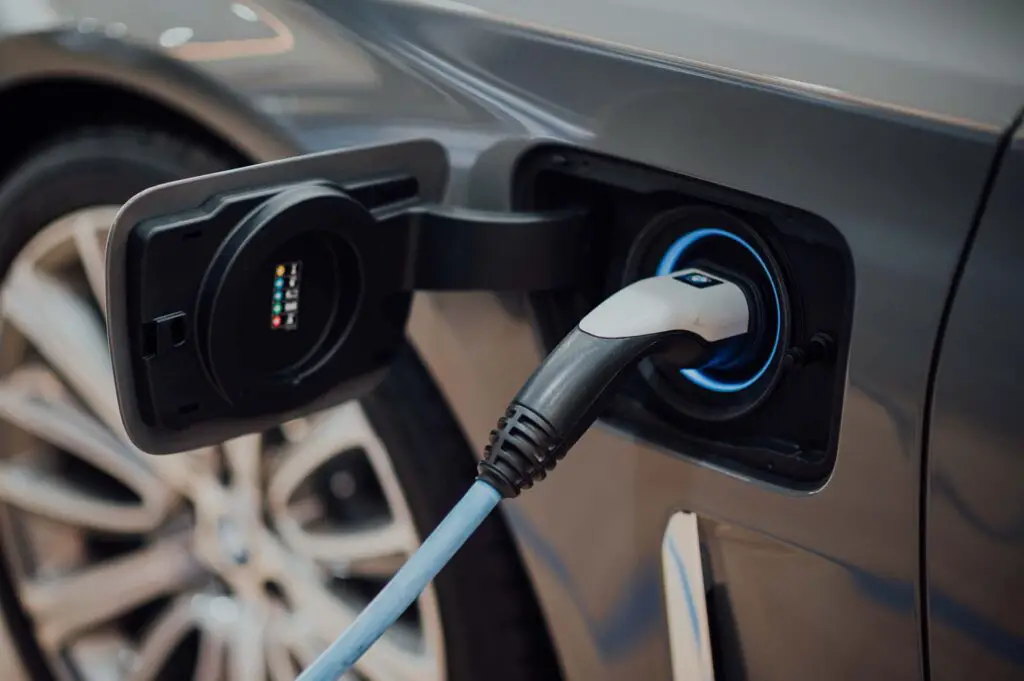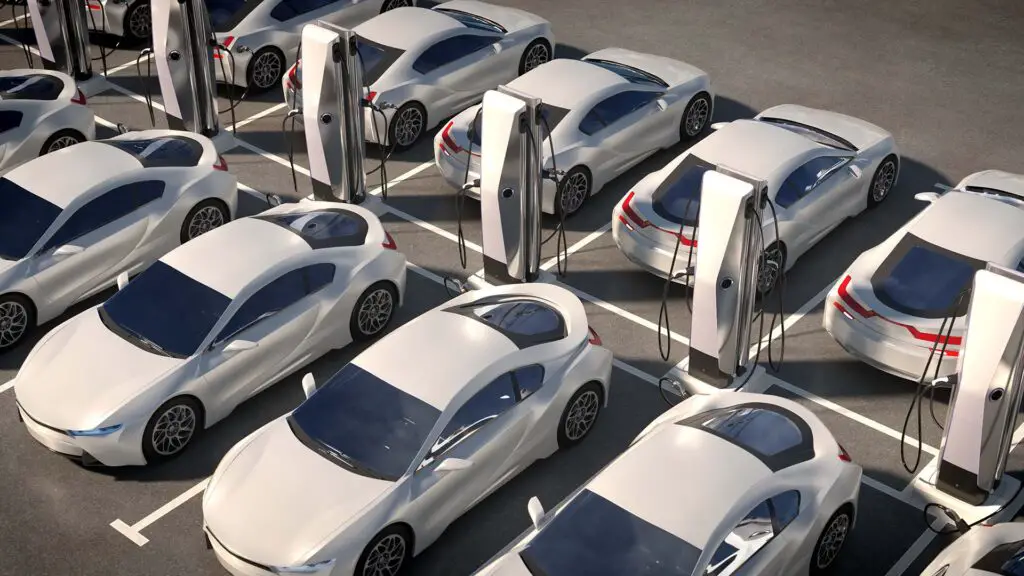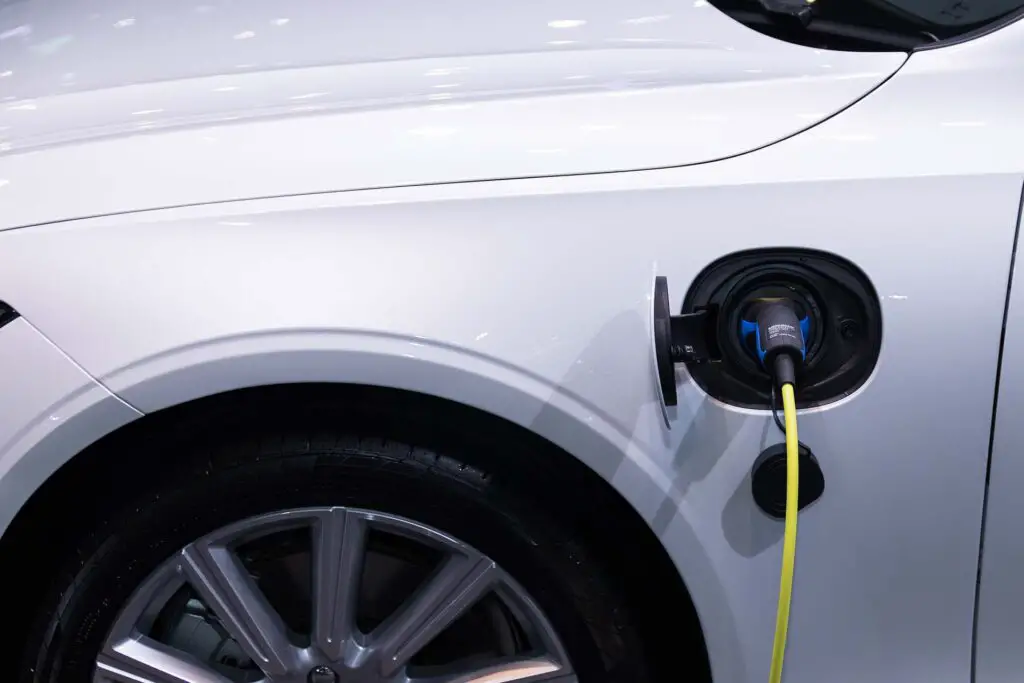In the ever-evolving world of electric vehicles, the race toward a greener future gains momentum with each passing day. Now, there is the new tax credit to consider. That’s why you must know what electric cars qualify for the new tax credit. Fasten your seatbelt and join us on this electrifying journey to discover the electric cars that unlock the doors to a sustainable tomorrow. All while bringing a smile to your face and the wallet.
To be eligible for the tax credit, electric vehicles (EVs) must meet certain criteria. These include being manufactured in North America. Also, having a maximum manufacturer’s suggested retail price (MSRP) of $80,000 for SUVs and $55,000 for sedans, wagons, or hatchbacks.
What Exactly Is the New Tax Credit?
The new tax credit is a government initiative designed to encourage the adoption of EVs by providing financial benefits to eligible buyers. And it’s only a logical step with such an evolution of cars, right? It serves as a way to offset some of the costs associated with purchasing an electric car. The specific details of the tax credit can vary depending on the country or region, as different governments may have their policies and regulations in place.
Typically, the tax credit is a monetary amount that can be deducted from your total tax liability, effectively reducing the overall cost of the EV. By providing this initiative, governments aim to make these four-wheelers more affordable. As well as appealing, promoting the transition to cleaner and more sustainable modes of transportation.
What Are the Eligibility Criteria for Claiming the Tax Credit?
Understanding which EVs qualify for tax credits is crucial for making an informed purchase decision. It helps individuals assess the financial implications. Protects against car buying scams. It also allows for a comprehensive evaluation of the long-term costs of owning an electric vehicle.
By staying informed and researching the qualifying models, prospective buyers can confidently navigate the market. Ensuring a financially sound and rewarding EV ownership experience.
This being said, let’s check what are some common factors that may determine eligibility:
Vehicle Model
Typically, only certain electric vehicle models qualify for the tax credit. These models are often determined by their battery capacity, range, and energy efficiency.
Battery Size
The size of the vehicle’s battery pack may play a role in determining eligibility. Governments may set a minimum battery capacity threshold to ensure the vehicle meets the required energy efficiency and performance standards.
Purchase Date
The tax credit may only apply to electric vehicles purchased within a specific time frame. Governments often set a specific period during which the tax credit is available, encouraging early adoption of electric vehicles.
Tax Liability
In some cases, the tax credit may be limited to individuals or businesses with a certain level of tax liability. This means that if your tax liability is lower than the tax credit amount, you may not be able to claim the full credit.
Income Level
Certain jurisdictions may have income restrictions on claiming the tax credit. This means that individuals or households with higher incomes may be ineligible for full credit or may have a reduced credit amount.
It’s important to consult your local tax authority or government website to get accurate and up-to-date information on the specific eligibility criteria. But also about requirements for claiming the tax credit in your area.

What Electric Cars Qualify for New Tax Credit?
Let’s start exploring the latest cutting-edge four-wheelers that not only help reduce your carbon footprint but also save you money along the way. As the popularity of EVs continues to skyrocket, those who are considering purchasing or already own one are seeking clarity regarding their eligibility for the federal tax credit. This is especially important now, as a range of new credits have been reinstated for US consumers, accompanied by a set of intricate and ever-evolving conditions that can be perplexing.
Determining whether you qualify for the tax credit is not a straightforward yes or no answer, although, in a way, it partially is. The specific amount you may qualify for is dependent on various factors unique to each household. Additionally, starting January 1, 2023, new terms have been introduced that limit the number of EVs currently eligible for the tax credit.
These limitations are tied to factors associated with local US manufacturing, further adding to the complexity of the qualification process. This being said, here’s a table with information that will help you understand whether some of the best EVs are in this category or not.
| Make and Model | MSRP Limit | Tax Credit Amount |
| Cadillac Lyriq (2023-2024) | $80,000 | $7,500 |
| Chevrolet Bolt EUV (2022-2023) | $55,000 | $7,500 |
| Ford F-150 Lightning (2022-2023) | $80,000 | $7,500 |
| Volkswagen ID.4 / ID.4 S (2023) | $80,000 | $7,500 |
| Tesla Model Y WD/Long Range/Performance (2022- 2023) | $80,000 | $7,500 |
| Tesla Model 3 Performance (2022-2023) | $55,000 | $7,500 |
Which Cars May Qualify Only for a Partial Tax Credit?
Some EVs and plug-in hybrid electric vehicles (PHEVs) manufacturers have confirmed their eligibility for a partial tax credit of $3,750. This credit applies to four-wheelers that are put into service on or after April 18, 2023. However, there are additional requirements, including the vehicle’s manufacturer’s suggested retail price (MSRP) and the buyer’s income. Here are some of them:
- Ford Escape PHEV (2022 and 2023 model years, MSRP $80,000 or below; may qualify for a partial tax credit of $6,843 due to battery size if put into service before April 18, 2023),
- Ford E-Transit (2022 and 2023 model years, MSRP $80,000 or below),
- Ford Mustang Mach-E (2022 and 2023 model years, 2022 and 2023 model years, MSRP $80,000 or below),
- Jeep Wrangler 4xe PHEV (2022 and 2023 model years, MSRP $80,000 or below),
- Jeep Grand Cherokee 4xe PHEV (2022 and 2023 model years, MSRP $80,000 or below),
- Lincoln Corsair Grand Touring PHEV (2022 and 2023 model years, MSRP $80,000 or below; may qualify for a partial tax credit of $6,843 due to battery size if put into service before April 18, 2023),
- Rivian R1S (2023 model years, MSRP $80,000 or below),
- Rivian R1T (2023 model years, MSRP $80,000 or below),
- Tesla Model 3 standard range Rear-Wheel Drive only (2022 and 2023 model years, MSRP $55,000 or below).
Which Cars No Longer Qualify for the Tax Credit?
Nissan made a significant impact by introducing the Nissan Leaf, one of the first mass-market electric vehicles. The Nissan Leaf has become the best-selling EV worldwide, renowned for its reliability and practicality. However, starting April 2023, six vehicles, including the budget-friendly Nissan Leaf, will no longer be eligible for any credit. However, there is a possibility of their reinstatement in the future. Here are other vehicles in this group:
- Audi Q5 TFSI e Quattro PHEV,
- BMW X5 xDrive45e SUV,
- BMW 330e sedan,
- Volvo S60 PHEV, Extended Range and T8 Recharge,
- Genesis GV70 Electrified SUV.
The Treasury Department has the initiative to expand the list of approved manufacturers for the tax credit. Still, some vehicles that were previously eligible for the credit are no longer included on the list.

How Can You Determine the Amount of Tax Credit?
According to the IRS, the concept, in theory, is straightforward. If you purchase a new, qualified plug-in EV or fuel cell electric vehicle (FCV), you may be eligible for a credit of up to $7,500 under Internal Revenue Code Section 30D. However, it’s important to note that the Inflation Reduction Act of 2022 has introduced new regulations governing this credit for four-wheelers purchased between 2023 and 2032.
Nevertheless, it’s essential to understand that you can’t simply buy an EV and expect a direct $7,500 deduction from your taxes. In reality, the amount you qualify for is determined by your income tax and various specifications related to the electric vehicle you purchase, including its manufacturing origin.
Is This Credit Actually a Fixed Amount?
Before diving into the details, it’s crucial to understand two key phrases that accompany the $7,500 credit provided by the government: “may” and “up to.” In essence, this means you have the potential to qualify for a federal tax credit of up to $7,500 for your EV. However, it’s important to note that this credit is not a fixed amount.
To illustrate, let’s consider the scenario where you purchased a Ford F-150 Lightning and owed $3,500 in income tax for the current year. In this case, the federal tax credit you would receive is equivalent to your tax liability, which amounts to $3,500. On the other hand, if you owed $10,000 in federal income tax, you would qualify for the full $7,500 credit.
It’s crucial to understand that any unused portion of the $7,500 credit cannot be refunded to you or carried forward as a credit for future tax years. In other words, it is a non-refundable credit that solely offsets your tax liability for the given tax year.

What Are Some Additional Initiatives and Benefits to Know About?
Explore the range of clean transportation laws, regulations, and funding opportunities offered at the state level. And not to mention that these can help you cut down some car expenses.
Take California as an example. In this state, drivers have the opportunity to receive a rebate ranging from $2,000 to $4,500 or a grant of up to $5,000 through the Clean Vehicle Assistance Program. In addition to any federal credit received. It’s worth noting that the exact rebate and grant amounts are determined based on income.
Similar initiatives exist in other states as well, but they can vary in terms of availability and value. Just like the federal tax credit, these state-level initiatives depend on multiple factors and eligibility criteria.

Save Money by Learning What Electric Cars Qualify for the New Tax Credit
All in all, electric cars are becoming the way of the future. As more models appear on the market, you could be eligible for a Federal Tax Credit of up to $7,500. This amount can save you thousands while showing your commitment to the environment. With careful research and budgeting, your dream of owning an EV can become an eco-friendly reality!
On that note, why not take a ‘spark’ of inspiration and check out what’s available near you? And if you don’t end up with the Tesla Model S you were dreaming about – it’s ok. You’ll still enjoy saving money and going green.








